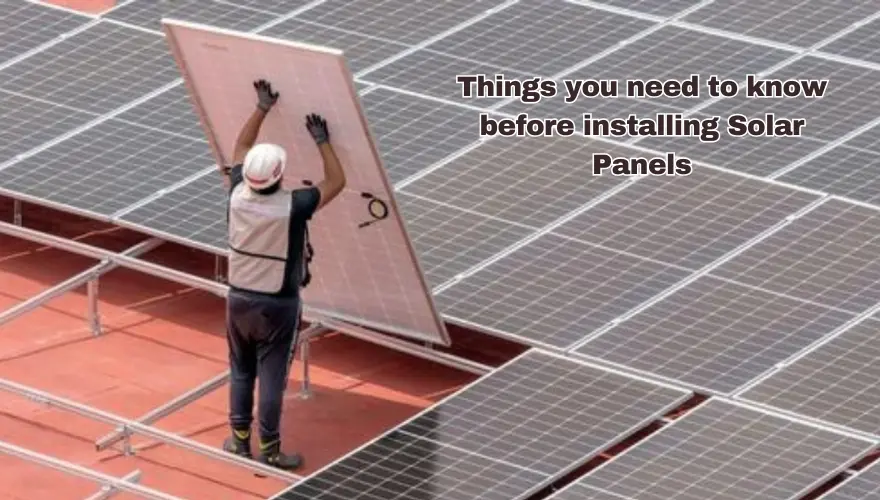
Transitioning to solar energy is one giant leap toward sustainable living. Nowadays, many homeowners are discovering the benefits of renewable energy through the installation of solar panels. However, before you can tap into the power of the sun, there are key things to consider. Here is a complete guide on the key things you need to know before installing solar panels, ensuring you make an informed decision.
Knowing Your Costs
The investment in solar panels is very capital-intensive, though the costs vary with the size of the system, the types of panels used, and additional equipment such as inverters and batteries. The immediate cost may seem high, but the savings on energy bills in the long run is more significant. Several incentives, including tax credits and rebates, can bring installation costs down significantly, and these incentives include efficient research on how one can bank the most amount of savings.
Determine your location
Efficiency depends greatly on location. Areas that can get considerable sunlight will definitely yield more energy. But even the cloudy cities, modern solar technology may capture enough energy to make an investment in them worthwhile. Analyze the average solar irradiation in your area either by consulting online resources or through a local solar provider. Consider also how the installation of the solar panels will fall within local regulations and permits.
Assessment of Roof Condition and Room
Your roof plays a pivotal role in solar panel installation. Before proceeding, evaluate whether your roof is in good condition. If your roof requires repairs or replacement, it’s best to address these issues beforehand. Additionally, consider the available space for solar panels. A larger roof area allows for more panels, increasing your energy generation capacity. Ensure that your roof can hold the load-bearing capacity of the panels and the area is not overshadowed by trees or neighboring buildings.
Estimating Energy Requirements
Knowing how much your home uses energy will help determine the size of your solar system. Use electricity bills for months to calculate what your average usage is. This will make it easy enough to give an approximate number of panels required to ensure that your needs are covered. Lifestyle changes such as electric vehicle acquisition or expansion of your home contribute towards increased energy requirements in the long run.
Calculating Benefits
One of the most encouraging merits of solar energy is the potential it has to save you money on electricity. Generating your own power cuts the monthly energy expenses to a fine fraction or even completely eliminates them. Even more, many regions provide net metering programs that allow the sales of extra energy put back into the grid: that could give even more advantages for your finances and more speedy return of investment. Calculate your potential savings to understand the long-term financial impact of installing solar panels.
Environmental Impact
Beyond saving money, investing in solar energy cuts down your carbon footprint. You contribute to having a clean environment and eradicating global warming by choosing a renewable source of energy. The production does not have emissions during its operational aspect, making it a friendly option to fossil fuels. It is in line with the global endeavors of changing the source of energy to a clean one.
Selecting the Best Installer
A good solar installer is what makes a great installation. Choose certified professionals with experience in the installation of solar panels. Read reviews, request referrals and compare quotes from multiple providers. A reliable solar installer will give warranties on their work and offer maintenance services, so the solar system will last for the years to come.
Explore: 5 Best Solar Panels in Pakistan
Conclusion
A Solar panel installation is one good investment, from cost to saving money and also to environmental advantages. The costs, location factors, roof conditions, energy needs, and potential savings can all be put into perspective in order to reach an informed decision that is in the best interest of financial and environmental goals. Always take the help of local solar experts who have knowledge to make an assembly that suits your house and lifestyle. Embrace the power of the sun and take a step toward a bright, pollution-free future with solar energy.